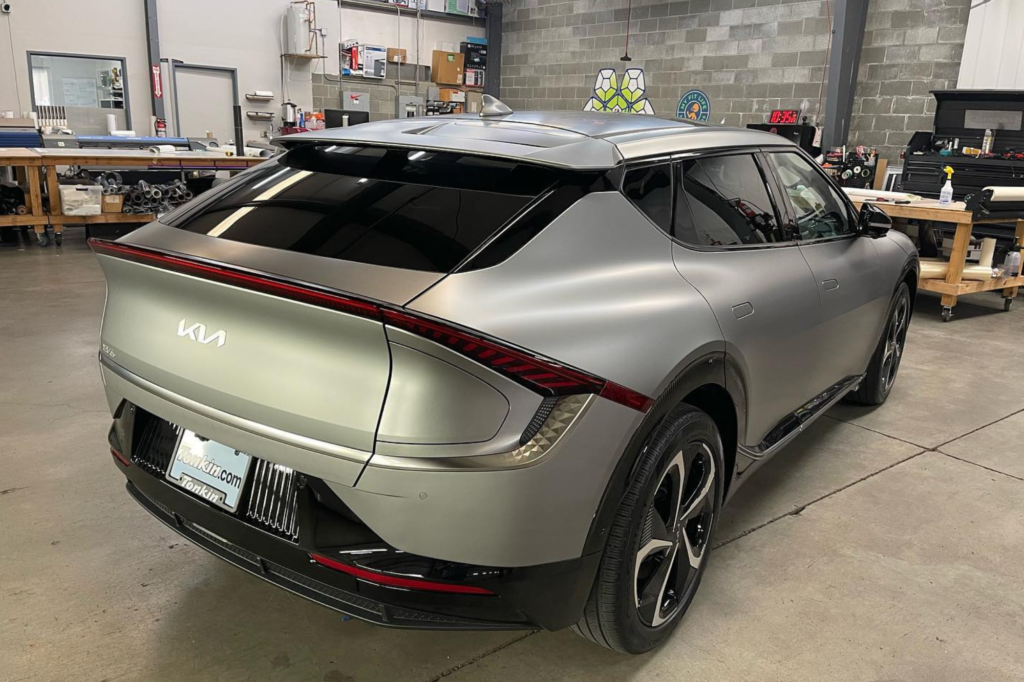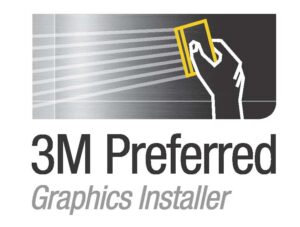Small scratches and paint chips can lower your car’s value by diminishing its exterior appeal and implying negligence. These imperfections can lead buyers to question the vehicle’s overall condition, potentially associating surface damage with future mechanical issues. Paint chips expose metal, fostering rust and corrosion. Dealerships often reduce trade-in offers when visible flaws are present, considering repair costs in valuations. Ignoring these defects might increase future repair expenses, making a cost-benefit analysis essential. Professional repair solutions, like paint protection film Portland OR service, can restore and maintain your vehicle’s appearance, boosting its perceived worth. Explore more to understand your options.
Key Takeaways
- Small scratches and paint chips can significantly decrease a car’s resale value by affecting its aesthetic appeal.
- Buyers often perceive scratches and chips as neglect, suggesting possible underlying mechanical issues.
- Visible exterior imperfections lead to lower trade-in valuations from dealerships.
- Unaddressed paint damage can cause rust, escalating future repair costs and further lowering value.
- Professional repair of minor blemishes can enhance a car’s resale and trade-in potential.
Impact on Resale Value
When evaluating a car’s resale value, the condition of its exterior holds significant weight. Even small car scratches value can become a vital factor, as these seemingly minor imperfections may suggest neglect.
Paint chips reduce car value by detracting from the vehicle’s overall aesthetic appeal. This isn’t merely about appearance; it’s a matter of financial impact. Scratches and chips can put off potential buyers and affect negotiations, with buyers often using these flaws to justify lower offers.
Dealerships, too, take these imperfections seriously when determining a trade-in value. A car with visible scratches or paint chips might receive a reduced offer due to the perceived need for repairs.
Beyond aesthetics, small scratches and chips can lead to more severe issues, such as rust and corrosion. When metal is exposed, it’s susceptible to environmental damage, which can escalate repair costs over time.
Thus, addressing these issues promptly is essential to maintaining your car’s value. To sum up, maintaining a vehicle’s exterior in pristine condition is vital to preserving its resale value and avoiding potential financial losses down the road.
Buyer Perception
Potential buyers often scrutinize a car’s exterior as a key indicator of its overall condition. When they notice small car scratches, they might perceive these imperfections as signs of neglect, even if the vehicle has been well-maintained mechanically.
Small car scratches can lead to the assumption that there may be other unseen issues, potentially decreasing their confidence in the vehicle’s reliability. This perception can directly affect your car’s value in the eyes of prospective buyers.
Similarly, paint chips reduce car value by implying a lack of care. A car with visible paint chips might be seen as more prone to developing rust and corrosion, which could require expensive repairs down the line.
This perception of potential future costs can lead buyers to negotiate lower purchase prices as they factor in the expense of addressing these imperfections.
In both cases, the visual impact of scratches and paint chips can diminish curb appeal, leading to a less favorable initial impression.
Buyers are often willing to pay more for a vehicle that appears pristine and well-cared-for. As a result, maintaining your car’s exterior condition can play an essential role in preserving its value and appeal.
Appraisal Considerations
Appraisal factors play an essential role in determining your car’s market value. When appraisers evaluate your vehicle, they examine various elements, including the condition of the exterior.
Small car scratches and paint chips are critical aspects in this assessment. These imperfections, while seemingly minor, can signal potential issues to appraisers. They may perceive the damage as neglect or a lack of maintenance, which could reduce the perceived value of the car. Consequently, appraisers often adjust their valuations downward, reflecting the reduced appeal and potential for further deterioration.
The presence of paint protection film services can specifically reduce car value by exposing the metal underneath to rust and corrosion, which appraisers factor into their evaluations. They consider the cost and effort required for repairs, which further impacts the car’s value.
Additionally, a car with visible scratches suggested to appraisers that there could be underlying problems, even if none exist.

Repair vs. Ignore
Evaluating your car’s exterior condition is just the beginning of understanding its market value. When deciding whether to repair or ignore paint damage, consider how small car scratches value. Even minor imperfections can greatly impact your car’s resale and trade-in prospects. The presence of scratches and paint chips reduces car value by diminishing its aesthetic appeal, potentially leading buyers to assume neglect.
Dealerships, when evaluating trade-in offers, often factor in these visible flaws, which can result in lower valuations. Potential long-term consequences should inform the choice between repairing or ignoring these minor damages. Small scratches and paint chips expose your vehicle’s metal to elements, accelerating rust and corrosion. This not only increases future repair costs but also further depreciates the car’s value.
Analyze the severity and location of the damage. If left unattended, minor blemishes could evolve into extensive paintwork issues, affecting structural integrity. On the other hand, immediate repairs mightn’t always be economically sensible for older vehicles with already diminished values.
Balance repair costs against potential value retention. Regular maintenance and strategic repairs can help preserve your vehicle’s marketability, ensuring better resale outcomes.
DIY Solutions
While addressing minor scratches and paint chips yourself can be a cost-effective solution, it’s vital to approach the task with precision and the right tools. By doing so, you can maintain your vehicle’s aesthetic appeal and preserve its value.
Small car scratches can negatively impact your car’s resale value if left unattended. To fix car scratches effectively, start by evaluating the damage to determine the appropriate method.
For minor blemishes, touch-up paint pens are an excellent choice. These pens allow you to apply the paint directly to the scratch, restoring the color and preventing further deterioration. Make sure the car’s surface is clean and dry before application to achieve the best results.
For shallow scratches, consider using scratch removers or polishing compounds. These products can smooth out imperfections by gently removing a thin layer of the clear coat, restoring the surface’s uniformity.
Using these DIY solutions not only enhances your car’s appearance but also prevents small scratches from evolving into larger issues that could further reduce your car’s value.
Regular maintenance and prompt repairs are key strategies for preserving your vehicle’s exterior and retaining its market appeal.
Professional Repair Options
When minor scratches and paint chips surpass the scope of DIY solutions, turning to professional repair options guarantees extensive and lasting results. By addressing these imperfections professionally, you make certain that small car scratches don’t lower your vehicle’s value.
Professional services include paint correction and buffing, which effectively eliminate surface-level blemishes that can otherwise detract from your car’s appearance and reduce its marketability.
Opting for spot painting and full-panel repainting tackles more extensive damage. These methods restore the car’s original finish, preventing paint chips from visibly reducing car value. Such thorough repairs also stop exposed metal from rusting, which could lead to more significant structural issues over time.
For long-term protection, professional application of paint protection film (PPF) or ceramic coatings is advisable. These options shield your car against future minor scratches and chips, preserving its aesthetic appeal and value.
Professional repair services, though more costly upfront, offer precision and expertise that DIY approaches often lack. By investing in these services, you not only maintain your vehicle’s current value but also enhance its resale and trade-in potential, making sure it remains in top condition for years to come.
In Summary
By addressing small scratches and paint chips, you’re actively preserving your car’s resale value. Buyers often perceive these imperfections as signs of neglect, which can negatively impact their perception and the appraisal process. Ignoring these issues might lead to further damage, like rust, increasing repair costs. At WrapCo, we offer professional repair services to help maintain your car’s aesthetic and structural integrity. Ultimately, proactive measures ensure your vehicle remains appealing and valuable in the market.

